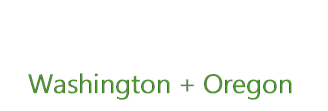Insurance Companies Claims Processing
Serving Victims in Vancouver, WA and Portland Oregon - as well as Surrounding areas
Insurance companies and their objectives
An insurance company earns a profit by collecting more in premiums from all policyholders than the insurer pays out in all losses, personal injury claims, and operating expenses. Insurers also earn profits by investing premiums in real estate and the stock market prior to paying personal injury claim losses associated with the premiums that have been invested.
The money paid to buy insurance coverage is called “premiums”. Persons who buy insurance coverage and pay premiums are called “policy holders”. Policyholders pay premiums in exchange for an insurance company’s promise to pay money to cover a financial loss suffered, or obligation incurred, by a policyholder. A personal injury claim represents such a loss.
 An insurer’s ability to earn money by investing premiums is only reduced by the amount of money that must be paid to cover policyholder losses, personal injury claims and the insurer’s operating expenses. Normally there is a lapse of time between when premiums are collected and when losses, such as personal injury claims, must be paid in connection with those premium dollars. At the beginning of an insurance policy period, an insurer will have almost all of the premiums collected available for investment. As time goes by, the insurer may have to pay losses and personal injury claims, thereby reducing the money available to invest.
An insurer’s ability to earn money by investing premiums is only reduced by the amount of money that must be paid to cover policyholder losses, personal injury claims and the insurer’s operating expenses. Normally there is a lapse of time between when premiums are collected and when losses, such as personal injury claims, must be paid in connection with those premium dollars. At the beginning of an insurance policy period, an insurer will have almost all of the premiums collected available for investment. As time goes by, the insurer may have to pay losses and personal injury claims, thereby reducing the money available to invest.
It is not unusual for years to go by before an insurer is required to pay a loss or personal injury claim on any particular policy of insurance. For instance, how many people actually ever have a recovery from their home fire insurance? On the other hand, a single loss sustained by an individual policyholder can exceed the amount that the policyholder has paid in premiums.
High Investment Profit
When there is a lot of money to be made on investments, some insurers will knowingly collect less in premiums than the insurer will have to pay out in losses and personal injury claims. Insurers do that to compete against other insurers for customers in order to generate premium money with which to invest.
If an insurance company does well enough on investments, the insurer can actually make a profit even though it pays more out in losses and personal injury claims than it has collected in premiums.
Raising Premiums when Investment Profit is Down
If the economy slumps and investments become less profitable, insurers often rapidly raise the cost of premiums to policyholders in order to make up for declining investment opportunities and profits.
If interest rates and the stock market are down, you can bet that premiums will rise and some types of insurance will become unavailable. That is why insurance sometimes suddenly becomes more expensive or unavailable entirely - because insurance companies are making up for poorly performing investments.
Blaming Declining Profits on Losses Instead of Investments
 When premiums are increased because investments are less profitable, insurance companies typically blame the increases on having to cover more risk and pay higher losses. The truth is often that insurers are simply playing catch-up for having undercharged premiums when investments brought a higher return.
When premiums are increased because investments are less profitable, insurance companies typically blame the increases on having to cover more risk and pay higher losses. The truth is often that insurers are simply playing catch-up for having undercharged premiums when investments brought a higher return.
Insurance companies do not like to talk about their income from investments when discussing profit and loss. If an insurer has collected less in premium dollar than it has been called to pay out to cover policyholder losses and personal injury claims, there is an “underwriting loss.” Insurers would sometimes have you believe that they are losing money when in fact their investment income might be nicely offsetting any underwriting loss and producing a tidy profit.
Without any question, however, the amount that an insurer pays out in policyholder losses and personal injury claims has an effect on an insurer’s profit. But an insurance company is not unprofitable merely because more is paid out in policyholder losses than is collected in premiums. How much an insurer raises premiums to policyholders can depend on how much competitive greed for money to invest caused an insurer to refrain from imposing incremental policy increases to cover future investment shortfalls.
It is advantageous for insurance companies to blame premium increases on higher or more frequent policyholder losses and personal injury claims. Insurers will argue that more frequent and higher claims are their justification for lobbying the passage of legislation that reduces what the insurer has to pay out in policy benefits.
Having legislative bodies adopt laws that reduce risk and policyholder benefits is one way of increasing insurance company profits. It is also a way to justify premium increases and withdrawing the availability of coverage when investments are not performing, in order to play catch-up for having failed to impose smaller, more reasonable incremental premium increases earlier.
Read about Claim Adjusters and how they work to avoid paying out on claims. You can also review Car Accident Insurance Claims.
Perhaps you have choices that you might not have otherwise considered. Feel free to call for an appointment or a phone conference at no charge.
We work hard to protect your rights and get you the maximum compensation you deserve.
Contact SellersLawOffice.com
Contact us to discuss your personal injury case.



